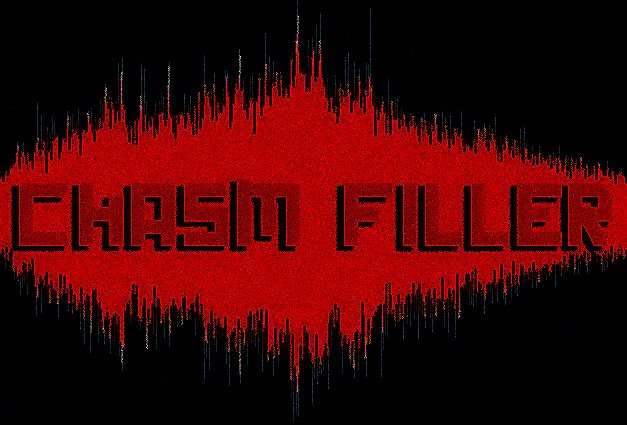
David Toop: master improviser, sound artist, instrument builder, scholar, living encyclopaedia and renowned journalist and author (go read "Rap Attack", "Exotica: Fabricated Soundscapes In A Real World" and "Ocean of Sound").
"...But these animadversions didn't cure my need for a respite, and like the linear guy I am I found one in a book. Subtitled "Aether Talk, Ambient Sound and Imaginary Worlds," David Toop's Ocean of Sound (Serpent's Tail) reminded me of what a glut of vapid electronica had made me forget--that pretechno and trance and the quiet stuff Brian Eno dubbed ambient all fit into a contemplative sensibility I'd rooted for since Terry Riley's A Rainbow in Curved Air in 1969, a sensibility that knows the uses and pleasures of rhythm even when it means to transcend them. Starting from Debussy and (tell 'em about it, David) Sun Ra without conceding a thing to the diachronic, Toop explodes the boundaries of that sensibility. Though he's suitably world-historical about "this alternately disorientating and inspiring openness through which all that is solid melts into aether," he's neither messianic nor polemical, which given the openness he's down with is only meet. And he's not too polite to mention when Stockhausen or the Aphex Twin or My Life in the Bush of Ghosts or Alice Coltrane fall short. From the short-lived Collusion to The Rap Attack to The Face to The Wire, Toop has always been an adventurous, knowledgeable critic. In a subculture that credits DJ Spooky's ridiculous spiels, he qualifies as a master sage.
Hopping from history to interview to description to memoir to analysis, hooking up Miles Davis and Kraftwerk and Lee Perry and Pandit Pran Nath, Toop has assembled a book that evokes and encapsulates simultaneously, a perfectly imperfect model of the kitchen-sink structures he'll convince you we can no longer live without. A fan of Sun Ra's comic grasp as well as his cosmic reach, Toop knows the dangers of political passivity, mind-body dualism, avant-garde bullshit, "the fine tribal and class divisions of leisure pursuits," and electronic "communities" that are no such thing. "What is ambient music?" he has the sense to ask early on. "Calm, therapeutic sounds for chilling out or music which taps into the disturbing, chaotic undertow of the environment?" Yet in the end he believes he is onto the future: "Music--fluid, quick, ethereal, outreaching, time-based, erotic and mathematical, immersive and intangible, rational and unconscious, ambient and solid--has anticipated the aether talk of the information ocean."
For Toop, ambient answers a need that's postmodern and millennial, synthesizing insecurity and hope, "bliss" and "non-specific dread." Together or separately, these examples are what he's talking about. They're designed as microcosms to dive into, not magic carpets to escape on, and gently or subtly or harshly or esoterically or whimsically or just plain oddly they accommodate the disturbing and the chaotic. Anybody whose notion of ambient is conditioned by the diverting sounds, swelling textures, and lulling grooves of the chill-out room may never buy another Quango collection again. Toop shows no interest in the 19th-century certainties so denatured by the new agers, whose complacent futurism and comfortable relations with a Higher Being the quieter postdance will get to eventually. Nor does he buy into the fuzak swing that signifies hip refinement not just in acid jazz, the lamest of the postdance subgenres, but in most drum-and-bass and a chunk of ambient as well. Although it's conceivable that Ocean of Sound will piss off postdance loyalists by downplaying their electronic experiments, it ought to do the opposite--point middle ways between a Hi-NRG with inevitable limits and the unobtrusive schlock the scene is just too vivid for.
Toop is a pretty vivid guy himself. Since 1995, he's assembled two additional two-CD sets for Virgin as well as recording two albums of his own music. Crooning on Venus, the vocal counterpart to Ocean of Sound, seems unnecessarily willful--mostly, I suspect, because the popular song Robert Wyatt and Chet Baker and Stina Nordenstam and Sheila Chandra think they're improving on is still far more vital formally than ambient house ever could be. Sugar and Poison, however, bears the same relation to the quiet-storm makeout-music comps where labels now recycle soul also-rans as Ocean of Sound does to ambient house--these come-ons are literally edgier, beset by an anxiety smoover grooves muffle and no less sexy for that. On Pink Noir (Virgin U.K.) and Screen Ceremonies (The Wire Editions U.K.), Toop plays guitar and anything else he can get his digits on, mixing in the worldwide sounds he's celebrated since he co-edited Collusion and bending the improvising community he's been part of since the '70s toward trad ambient. Besides how well they can or can't play, what distinguishes improvisers from mere jazz guys is their disdain or incapacity for swing or any other kind of pulse. So I'm delighted to report that Pink Noir, which features collaborators such as Hassell, is like an improviser's hodgepodge with a pulse, which usually makes all the difference. Screen Ceremonies's music for a postmodern sex ritual is even better--very Hassell-like in its tension, mystery, and organizing groove, and Hassell is as good as trad ambient gets. Tell me about a chill-out room where they play "The Psychic" and I'll do my damnedest not to nod off there." - Robert Christgau



Thanks, this looks interesting.
ReplyDelete